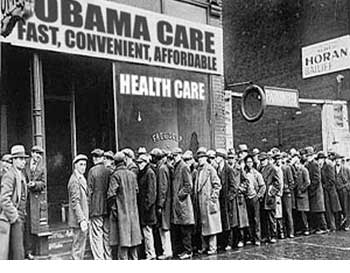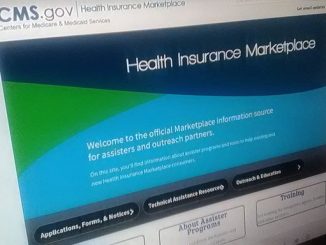 Critics of the Affordable Care Act, myself included, have said from its misbegotten inception that it is a recipe for destroying health insurance.
Critics of the Affordable Care Act, myself included, have said from its misbegotten inception that it is a recipe for destroying health insurance.
But don’t take our word for it. Take the word of the companies it is already killing at a rapid clip: the very insurance cooperatives that were created under Obamacare’s auspices in the first place.
The theory was that co-ops, which would not aim to make a profit, could offer cheaper insurance than private-sector enterprises that expect to pay shareholders a return on their capital. So rather than raise equity from private investors, the 23 co-ops received $2.4 billion in federal loans. In addition to the government eventually getting its money back, supporters claimed, the co-ops would reward even nonsubscribers by eventually creating lower insurance rates for everyone through the pressure of their low-priced competition.
In less than two years, this approach has proved to be bogus as a theory and disastrous as a real-world exercise in risk management. Eight of the 23 co-ops have already collapsed, including the two largest, and the surviving companies are banding together in a coalition to argue that they are being destroyed by the very law that created them in the first place.
It turns out that when consumers confront a choice between, on the one hand, a large, reputable, well-established private insurer that has a vast physician and hospital network and decades of experience in paying for health care and, on the other hand, a newly formed, thinly capitalized co-op that lacks all the resources and experience of its competitors, the co-op can compete only on price. So the co-ops grossly underpriced their policies. Since the ACA forbids insurers from excluding pre-existing conditions from coverage, the co-ops attracted a combination of sick people whose care is very expensive (especially for organizations that lack the scale to negotiate big discounts from providers) and healthy young people on tight budgets who will bolt at the first sign of a premium increase. And co-ops lack the corporate-health-plan business that also provides scale and financial cushion to private competitors.
The unsurprising result: The co-ops ended up spending significantly more on claims than they collected in premiums.
The co-ops are dropping like flies, with many of the remaining programs subject to “enhanced oversight” from the government due to performance issues. A government audit found that all but one are already unprofitable. Chances are good that most, if not all, of that $2.4 billion in federal startup loans will never be repaid. Hundreds of thousands of co-op customers are already being tossed back into the marketplace to hunt for replacement policies.
The co-op coalition blames another part of the ACA that requires companies that attracted healthier pools of patients to subsidize the losses of companies that attracted sicker pools. The so-called “risk corridor” was, in theory, meant to give small companies and start-ups a cushion to help them survive long enough to compete. But the payments were generally less than the co-ops expected, possibly because there aren’t enough insurers doing well under the Affordable Care Act to make up the shortfall. And Congress passed legislation last year forbidding the administration to make up shortages using other federal revenues.
The co-ops, who have aimed their marketing at the price-sensitive segment of the youngest adult consumers, essentially argue that their mission is to cherry-pick the most profitable consumers while shifting costlier customers to the private sector – and yet this is somehow supposed to bring down insurance costs for everyone. The co-ops overlook all of their own structural and operational disadvantages, which are going to bring them down as surely as a crippled gazelle standing in a grassland teeming with underfed lions.
Meanwhile, over in the private sector – again as predicted – costs are already spiraling in many areas, as companies that entered the ACA marketplace discover that being forced to cover older and sicker patients means higher costs than they projected, while tens of millions of healthy Americans continue to choose not to pay for insurance that they believe is not the most pressing use for their funds, even with the aid of massive government subsidies. The law’s largely toothless penalties, in combination with premiums that will only continue to rise, mean that this group is unlikely to shrink substantially anytime soon.
It has gotten tiresome for everyone to listen to Obamacare critics point out the many ways the law defies economic logic while distorting and inflating the spending in our vast health care sector. It is probably time for us to keep quiet. Obamacare’s participants and backers, and the very entities it created, are now making the same points anyway.
- Bulenox: Get 45% to 91% OFF ... Use Discount Code: UNO
- Risk Our Money Not Yours | Get 50% to 90% OFF ... Use Discount Code: MMBVBKSM
Disclaimer: This page contains affiliate links. If you choose to make a purchase after clicking a link, we may receive a commission at no additional cost to you. Thank you for your support!




Leave a Reply